 Michael Hicks was presented with the 2023 Association for Mormon Letters Lifetime Achievement Award during the AML Virtual Conference on April 29. Hicks is a composer, performer, and music scholar, fields in which he is highly respected. AML’s award, however, is focused on his remarkable skill and output as a writer, publishing works the diverse fields of music scholarship, history, personal essay, memoir, poetry, and religious commentary, all written with his unique flair.
Michael Hicks was presented with the 2023 Association for Mormon Letters Lifetime Achievement Award during the AML Virtual Conference on April 29. Hicks is a composer, performer, and music scholar, fields in which he is highly respected. AML’s award, however, is focused on his remarkable skill and output as a writer, publishing works the diverse fields of music scholarship, history, personal essay, memoir, poetry, and religious commentary, all written with his unique flair.
Below is the award citation, followed by a video of the AML Conference’s conversation between Hicks and Lance Larsen, talking about his career and the themes that have frequently come up in his writing.
Award Citation
The Association for Mormon Letters proudly presents its 2023 Lifetime Achievement Award to Michael Hicks. Hicks is a composer, performer, and music scholar, fields in which he is highly respected. Beyond this, he has also made full use of his remarkable writing skills, producing highly engaging music scholarship, history, personal essays, poetry, religious commentary, and a memoir.
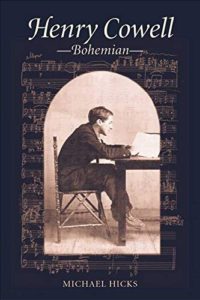 One of his colleagues wrote, “Michael Hicks is a perfect choice for the AML Lifetime Achievement Award. I can’t think of anyone living who has contributed more verse and prose in terms of titles, breadth, depth, ideas, or soul to Mormon letters, not to mention music theory and history, than Michael. His writing on important American musical pioneers Henry Cowell and Christian Wolff is foundational and definitive, as is his writing on Mormon music history. His writing is cited so much because he is so often the first to delve into the many ripe conceptual and factual lacunae lurking or in open site in Mormonism and music. Moreover, his scholarly prose is among the best in its clarity, economy, wit, and forward momentum, which is unusual/commendable in the field.
One of his colleagues wrote, “Michael Hicks is a perfect choice for the AML Lifetime Achievement Award. I can’t think of anyone living who has contributed more verse and prose in terms of titles, breadth, depth, ideas, or soul to Mormon letters, not to mention music theory and history, than Michael. His writing on important American musical pioneers Henry Cowell and Christian Wolff is foundational and definitive, as is his writing on Mormon music history. His writing is cited so much because he is so often the first to delve into the many ripe conceptual and factual lacunae lurking or in open site in Mormonism and music. Moreover, his scholarly prose is among the best in its clarity, economy, wit, and forward momentum, which is unusual/commendable in the field.
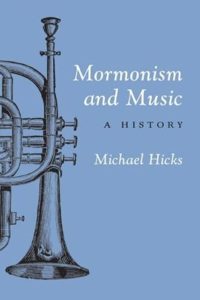 “His worldly commendations, publications, and recognition are staggering. But creativity in the realms of words, sounds and images find their way into uncurated spaces with equal prolificity, generosity, and profundity. He was an early adopter of Facebook and has a large and loyal following on that medium. He uses it efficiently and creatively to share political and religious insight, humor, music, anecdotes, art, but, most poignantly for many of us, poetry, especially his psalm series. All of Michael’s work is imbued with the soul and skill of a poet, and these are most potently evident in the psalms, each of which (incredibly for how many there are) has its own unique color, rhythm, and insight. (They seem to only be available on Facebook, are numbered rather than titled, and I have seen numbers in the 500s). In these psalms (as in his essays and other writing, as well as his music) we see Michael’s unique balance/blending/wrestling/interlocking of the sacred-absurd-secular-earthy-profound. It’s hard to locate their point of view in the two dimensions of the written word they employ. These writings uplift while introducing new puzzles, while confirming and reconciling us to the unsolvableness of old ones.”
“His worldly commendations, publications, and recognition are staggering. But creativity in the realms of words, sounds and images find their way into uncurated spaces with equal prolificity, generosity, and profundity. He was an early adopter of Facebook and has a large and loyal following on that medium. He uses it efficiently and creatively to share political and religious insight, humor, music, anecdotes, art, but, most poignantly for many of us, poetry, especially his psalm series. All of Michael’s work is imbued with the soul and skill of a poet, and these are most potently evident in the psalms, each of which (incredibly for how many there are) has its own unique color, rhythm, and insight. (They seem to only be available on Facebook, are numbered rather than titled, and I have seen numbers in the 500s). In these psalms (as in his essays and other writing, as well as his music) we see Michael’s unique balance/blending/wrestling/interlocking of the sacred-absurd-secular-earthy-profound. It’s hard to locate their point of view in the two dimensions of the written word they employ. These writings uplift while introducing new puzzles, while confirming and reconciling us to the unsolvableness of old ones.”
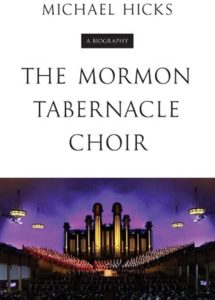
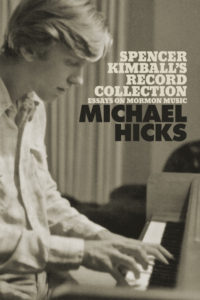 Michael has authored nine books on a wide variety of musical and literary themes, all of which are enriched by his careful scholarship and enlivened by his droll wit. He is the premier scholar of Mormon music history, producing three significant works: 𝘔𝘰𝘳𝘮𝘰𝘯𝘪𝘴𝘮 𝘢𝘯𝘥 𝘔𝘶𝘴𝘪𝘤: 𝘈 𝘏𝘪𝘴𝘵𝘰𝘳𝘺 (1989, winner of awards from both the Mormon History Association and Association for Mormon Letters), 𝘛𝘩𝘦 𝘔𝘰𝘳𝘮𝘰𝘯 𝘛𝘢𝘣𝘦𝘳𝘯𝘢𝘤𝘭𝘦 𝘊𝘩𝘰𝘪𝘳: 𝘈 𝘉𝘪𝘰𝘨𝘳𝘢𝘱𝘩𝘺 (2015), and 𝘚𝘱𝘦𝘯𝘤𝘦𝘳 𝘒𝘪𝘮𝘣𝘢𝘭𝘭’𝘴 𝘙𝘦𝘤𝘰𝘳𝘥 𝘊𝘰𝘭𝘭𝘦𝘤𝘵𝘪𝘰𝘯: 𝘌𝘴𝘴𝘢𝘺𝘴 𝘰𝘯 𝘔𝘰𝘳𝘮𝘰𝘯 𝘔𝘶𝘴𝘪𝘤 (2020). Immensely readable and sparkling with fascinating anecdotes, they are some of the most enjoyable history books of Mormonism ever produced.
Michael has authored nine books on a wide variety of musical and literary themes, all of which are enriched by his careful scholarship and enlivened by his droll wit. He is the premier scholar of Mormon music history, producing three significant works: 𝘔𝘰𝘳𝘮𝘰𝘯𝘪𝘴𝘮 𝘢𝘯𝘥 𝘔𝘶𝘴𝘪𝘤: 𝘈 𝘏𝘪𝘴𝘵𝘰𝘳𝘺 (1989, winner of awards from both the Mormon History Association and Association for Mormon Letters), 𝘛𝘩𝘦 𝘔𝘰𝘳𝘮𝘰𝘯 𝘛𝘢𝘣𝘦𝘳𝘯𝘢𝘤𝘭𝘦 𝘊𝘩𝘰𝘪𝘳: 𝘈 𝘉𝘪𝘰𝘨𝘳𝘢𝘱𝘩𝘺 (2015), and 𝘚𝘱𝘦𝘯𝘤𝘦𝘳 𝘒𝘪𝘮𝘣𝘢𝘭𝘭’𝘴 𝘙𝘦𝘤𝘰𝘳𝘥 𝘊𝘰𝘭𝘭𝘦𝘤𝘵𝘪𝘰𝘯: 𝘌𝘴𝘴𝘢𝘺𝘴 𝘰𝘯 𝘔𝘰𝘳𝘮𝘰𝘯 𝘔𝘶𝘴𝘪𝘤 (2020). Immensely readable and sparkling with fascinating anecdotes, they are some of the most enjoyable history books of Mormonism ever produced.
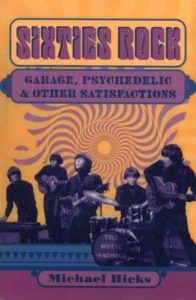 His other music scholarship is written in the same spirit, covering a wide range of subjects, well beyond the classical cannon. They include 𝘚𝘪𝘹𝘵𝘪𝘦𝘴 𝘙𝘰𝘤𝘬: 𝘎𝘢𝘳𝘢𝘨𝘦, 𝘗𝘴𝘺𝘤𝘩𝘦𝘥𝘦𝘭𝘪𝘤, 𝘢𝘯𝘥 𝘖𝘵𝘩𝘦𝘳 𝘚𝘢𝘵𝘪𝘴𝘧𝘢𝘤𝘵𝘪𝘰𝘯𝘴 (1999), and two studies of avant-garde composers, 𝘏𝘦𝘯𝘳𝘺 𝘊𝘰𝘸𝘦𝘭𝘭, 𝘉𝘰𝘩𝘦𝘮𝘪𝘢𝘯 (2002), 𝘊𝘩𝘳𝘪𝘴𝘵𝘪𝘢𝘯 𝘞𝘰𝘭𝘧𝘧 (2012, co-authored with Christian Asplund).
His other music scholarship is written in the same spirit, covering a wide range of subjects, well beyond the classical cannon. They include 𝘚𝘪𝘹𝘵𝘪𝘦𝘴 𝘙𝘰𝘤𝘬: 𝘎𝘢𝘳𝘢𝘨𝘦, 𝘗𝘴𝘺𝘤𝘩𝘦𝘥𝘦𝘭𝘪𝘤, 𝘢𝘯𝘥 𝘖𝘵𝘩𝘦𝘳 𝘚𝘢𝘵𝘪𝘴𝘧𝘢𝘤𝘵𝘪𝘰𝘯𝘴 (1999), and two studies of avant-garde composers, 𝘏𝘦𝘯𝘳𝘺 𝘊𝘰𝘸𝘦𝘭𝘭, 𝘉𝘰𝘩𝘦𝘮𝘪𝘢𝘯 (2002), 𝘊𝘩𝘳𝘪𝘴𝘵𝘪𝘢𝘯 𝘞𝘰𝘭𝘧𝘧 (2012, co-authored with Christian Asplund).
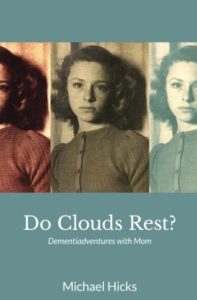 Recently, he has been publishing more personal works. 𝘛𝘩𝘦 𝘚𝘵𝘳𝘦𝘦𝘵-𝘓𝘦𝘨𝘢𝘭 𝘝𝘦𝘳𝘴𝘪𝘰𝘯 𝘰𝘧 𝘔𝘰𝘳𝘮𝘰𝘯’𝘴 𝘉𝘰𝘰𝘬 (2012), is an insightful and humorous rewritten adaption of the Book of Mormon that won an AML award. 𝘋𝘰 𝘊𝘭𝘰𝘶𝘥𝘴 𝘙𝘦𝘴𝘵? 𝘋𝘦𝘮𝘦𝘯𝘵𝘪𝘢𝘥𝘷𝘦𝘯𝘵𝘶𝘳𝘦𝘴 𝘸𝘪𝘵𝘩 𝘔𝘰𝘮 (2017) is a short collection of (in Blair Hodges words) “funny, sad, and thoughtful essays about his mother’s final eight months of life with dementia.”
Recently, he has been publishing more personal works. 𝘛𝘩𝘦 𝘚𝘵𝘳𝘦𝘦𝘵-𝘓𝘦𝘨𝘢𝘭 𝘝𝘦𝘳𝘴𝘪𝘰𝘯 𝘰𝘧 𝘔𝘰𝘳𝘮𝘰𝘯’𝘴 𝘉𝘰𝘰𝘬 (2012), is an insightful and humorous rewritten adaption of the Book of Mormon that won an AML award. 𝘋𝘰 𝘊𝘭𝘰𝘶𝘥𝘴 𝘙𝘦𝘴𝘵? 𝘋𝘦𝘮𝘦𝘯𝘵𝘪𝘢𝘥𝘷𝘦𝘯𝘵𝘶𝘳𝘦𝘴 𝘸𝘪𝘵𝘩 𝘔𝘰𝘮 (2017) is a short collection of (in Blair Hodges words) “funny, sad, and thoughtful essays about his mother’s final eight months of life with dementia.”
His 2022 memoir, 𝘞𝘪𝘯𝘦𝘴𝘬𝘪𝘯: 𝘍𝘳𝘦𝘢𝘬𝘪𝘯’ 𝘑𝘦𝘴𝘶𝘴 𝘪𝘯 𝘵𝘩𝘦 ’60𝘴 𝘢𝘯𝘥 ’70𝘴, tells the story, according to David Cook, of “his own personal journey from a traditional, conservative Christian upbringing. to being a part of a Jesus Freak movement of the 70’s, to his conversion to the LDS faith, his missionary experience, excommunication, and return . . . Hicks is honest and vulnerable in sharing his own struggles with doubt, questioning, and ultimately, transformation . . . A key theme of the book is the concept of Jesus as a radical, 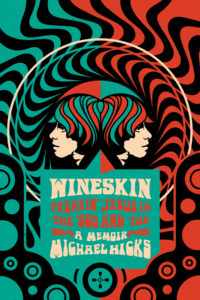 nonconformist figure who challenges the status quo and inspires transformational change. Hicks argues that this vision of Jesus is often overlooked or suppressed in mainstream Christian teachings, which prioritize conformity and tradition over innovation and creativity. He encourages readers to embrace a more dynamic and transformative understanding of Jesus and his message, one that emphasizes the importance of empathy, compassion, and radical love.”
nonconformist figure who challenges the status quo and inspires transformational change. Hicks argues that this vision of Jesus is often overlooked or suppressed in mainstream Christian teachings, which prioritize conformity and tradition over innovation and creativity. He encourages readers to embrace a more dynamic and transformative understanding of Jesus and his message, one that emphasizes the importance of empathy, compassion, and radical love.”
We are pleased to honor Michael’s lifetime of extraordinary literary work, and we look forward to more of his words of wisdom and expressions of empathy in the future, whether as psalms, folk songs, chamber music, or however he chooses to express himself.
Conversation between Michael Hicks and Lance Larsen, April 29, 2023
Here is a summary of Hicks’ career, based on his Amazon bio.
 Hicks received a Doctorate of Music Arts from the University of Illinois at Urbana-Champaign in 1984 and was a Professor of Music at Brigham Young University from 1985 until his retirement in 2020. He is a three-time recipient of the ASCAP-Deems Taylor Award for his writing about music and as editor of the journal American Music. He and his wife, Pam, are the parents of four children and have several grandchildren.
Hicks received a Doctorate of Music Arts from the University of Illinois at Urbana-Champaign in 1984 and was a Professor of Music at Brigham Young University from 1985 until his retirement in 2020. He is a three-time recipient of the ASCAP-Deems Taylor Award for his writing about music and as editor of the journal American Music. He and his wife, Pam, are the parents of four children and have several grandchildren.
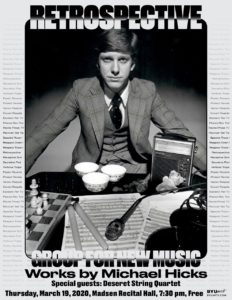 His dozens of historical and analytical articles have appeared in books such as the 𝘌𝘯𝘤𝘺𝘤𝘭𝘰𝘱𝘦𝘥𝘪𝘢 𝘰𝘧 𝘗𝘰𝘱𝘶𝘭𝘢𝘳 𝘔𝘶𝘴𝘪𝘤 𝘰𝘧 𝘵𝘩𝘦 𝘞𝘰𝘳𝘭𝘥 and the 𝘖𝘹𝘧𝘰𝘳𝘥 𝘏𝘢𝘯𝘥𝘣𝘰𝘰𝘬 𝘰𝘧 𝘔𝘰𝘳𝘮𝘰𝘯𝘪𝘴𝘮 as well as journals that include 𝘈𝘮𝘦𝘳𝘪𝘤𝘢𝘯 𝘔𝘶𝘴𝘪𝘤, 𝘑𝘰𝘶𝘳𝘯𝘢𝘭 𝘰𝘧 𝘈𝘦𝘴𝘵𝘩𝘦𝘵𝘪𝘤 𝘌𝘥𝘶𝘤𝘢𝘵𝘪𝘰𝘯, 𝘑𝘰𝘶𝘳𝘯𝘢𝘭 𝘰𝘧 𝘵𝘩𝘦 𝘈𝘮𝘦𝘳𝘪𝘤𝘢𝘯 𝘔𝘶𝘴𝘪𝘤𝘰𝘭𝘰𝘨𝘪𝘤𝘢𝘭 𝘚𝘰𝘤𝘪𝘦𝘵𝘺, and 𝘗𝘦𝘳𝘴𝘱𝘦𝘤𝘵𝘪𝘷𝘦𝘴 𝘰𝘧 𝘕𝘦𝘸 𝘔𝘶𝘴𝘪𝘤. He has been an invited guest lecturer at Stanford and the University of California at Berkeley and has read papers at various national meetings of groups such as the Society for American Music and the American Musicological Society. He has twice won the ASCAP-Deems Taylor Award (1994 and 2003) for his writing about music and a third time as editor of the journal 𝘈𝘮𝘦𝘳𝘪𝘤𝘢𝘯 𝘔𝘶𝘴𝘪𝘤, a post he held from 2007-2010.
His dozens of historical and analytical articles have appeared in books such as the 𝘌𝘯𝘤𝘺𝘤𝘭𝘰𝘱𝘦𝘥𝘪𝘢 𝘰𝘧 𝘗𝘰𝘱𝘶𝘭𝘢𝘳 𝘔𝘶𝘴𝘪𝘤 𝘰𝘧 𝘵𝘩𝘦 𝘞𝘰𝘳𝘭𝘥 and the 𝘖𝘹𝘧𝘰𝘳𝘥 𝘏𝘢𝘯𝘥𝘣𝘰𝘰𝘬 𝘰𝘧 𝘔𝘰𝘳𝘮𝘰𝘯𝘪𝘴𝘮 as well as journals that include 𝘈𝘮𝘦𝘳𝘪𝘤𝘢𝘯 𝘔𝘶𝘴𝘪𝘤, 𝘑𝘰𝘶𝘳𝘯𝘢𝘭 𝘰𝘧 𝘈𝘦𝘴𝘵𝘩𝘦𝘵𝘪𝘤 𝘌𝘥𝘶𝘤𝘢𝘵𝘪𝘰𝘯, 𝘑𝘰𝘶𝘳𝘯𝘢𝘭 𝘰𝘧 𝘵𝘩𝘦 𝘈𝘮𝘦𝘳𝘪𝘤𝘢𝘯 𝘔𝘶𝘴𝘪𝘤𝘰𝘭𝘰𝘨𝘪𝘤𝘢𝘭 𝘚𝘰𝘤𝘪𝘦𝘵𝘺, and 𝘗𝘦𝘳𝘴𝘱𝘦𝘤𝘵𝘪𝘷𝘦𝘴 𝘰𝘧 𝘕𝘦𝘸 𝘔𝘶𝘴𝘪𝘤. He has been an invited guest lecturer at Stanford and the University of California at Berkeley and has read papers at various national meetings of groups such as the Society for American Music and the American Musicological Society. He has twice won the ASCAP-Deems Taylor Award (1994 and 2003) for his writing about music and a third time as editor of the journal 𝘈𝘮𝘦𝘳𝘪𝘤𝘢𝘯 𝘔𝘶𝘴𝘪𝘤, a post he held from 2007-2010.
His poetry, meanwhile, has been published in 𝘋𝘪𝘢𝘭𝘰𝘨𝘶𝘦: 𝘈 𝘑𝘰𝘶𝘳𝘯𝘢𝘭 𝘰𝘧 𝘔𝘰𝘳𝘮𝘰𝘯 𝘛𝘩𝘰𝘶𝘨𝘩𝘵, 𝘓𝘪𝘵𝘦𝘳𝘢𝘵𝘶𝘳𝘦 𝘢𝘯𝘥 𝘉𝘦𝘭𝘪𝘦𝘧, 𝘉𝘠𝘜 𝘚𝘵𝘶𝘥𝘪𝘦𝘴, 𝘚𝘶𝘯𝘴𝘵𝘰𝘯𝘦, and 𝘗𝘴𝘢𝘭𝘵𝘦𝘳𝘺 𝘢𝘯𝘥 𝘓𝘺𝘳𝘦, as well as in the anthologies 𝘊𝘢𝘥𝘦𝘯𝘤𝘦 𝘰𝘧 𝘏𝘰𝘰𝘷𝘦𝘴 (2008), 𝘕𝘦𝘸 𝘗𝘰𝘦𝘵𝘴 𝘰𝘧 𝘵𝘩𝘦 𝘈𝘮𝘦𝘳𝘪𝘤𝘢𝘯 𝘞𝘦𝘴𝘵 (2010), and 𝘍𝘪𝘳𝘦 𝘪𝘯 𝘵𝘩𝘦 𝘗𝘢𝘴𝘵𝘶𝘳𝘦 (2011).
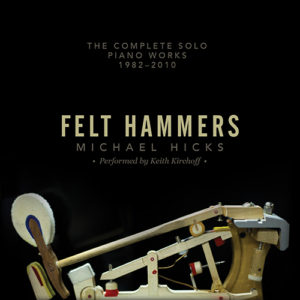 His chamber and solo works have been performed and recorded by BYU’s University Singers, Concert Choir, and Group for New Music (which he founded in 1987); by other performers around the country (including the Black Swamp Saxophone Quartet, the Menlo Brass Quintet, and the Memphis Symphony Brass Quintet); and by
His chamber and solo works have been performed and recorded by BYU’s University Singers, Concert Choir, and Group for New Music (which he founded in 1987); by other performers around the country (including the Black Swamp Saxophone Quartet, the Menlo Brass Quintet, and the Memphis Symphony Brass Quintet); and by
performing artists at events of the NOVA Chamber Series, American Society of University Composers, Cincinnati Composers Guild, and the Subtropics Music Festival. His 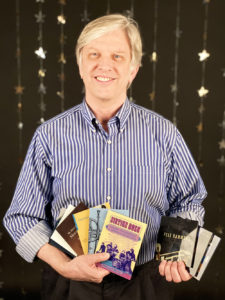 chamber music may be heard on the CDs 𝘍𝘰𝘶𝘯𝘥 𝘏𝘰𝘳𝘪𝘻𝘰𝘯 (1994), 𝘓𝘢𝘵𝘦 𝘊𝘰𝘯𝘷𝘦𝘳𝘴𝘢𝘵𝘪𝘰𝘯𝘴 (1996), 𝘙𝘪𝘵𝘶𝘢𝘭 𝘎𝘳𝘰𝘶𝘯𝘥𝘴 (2003), and 𝘍𝘦𝘭𝘵 𝘏𝘢𝘮𝘮𝘦𝘳𝘴 (2015), all on the Tantara label, which in 2007 also issued his singer-songwriter album 𝘝𝘢𝘭𝘦𝘯𝘵𝘪𝘯𝘦 𝘚𝘵.
chamber music may be heard on the CDs 𝘍𝘰𝘶𝘯𝘥 𝘏𝘰𝘳𝘪𝘻𝘰𝘯 (1994), 𝘓𝘢𝘵𝘦 𝘊𝘰𝘯𝘷𝘦𝘳𝘴𝘢𝘵𝘪𝘰𝘯𝘴 (1996), 𝘙𝘪𝘵𝘶𝘢𝘭 𝘎𝘳𝘰𝘶𝘯𝘥𝘴 (2003), and 𝘍𝘦𝘭𝘵 𝘏𝘢𝘮𝘮𝘦𝘳𝘴 (2015), all on the Tantara label, which in 2007 also issued his singer-songwriter album 𝘝𝘢𝘭𝘦𝘯𝘵𝘪𝘯𝘦 𝘚𝘵.
His many solo performances range from the Utah premiere (2006) of Morton Feldman’s 𝘗𝘢𝘭𝘢𝘪𝘴 𝘥𝘦 𝘔𝘢𝘳𝘪 to folk concerts for the fortieth anniversary of the assassination of Dr. Martin Luther King, Jr. (performed at various locations in Utah and Colorado, 2008).
Past AML Award citations:
Mormons and Music: A History. University of Illinois Press, 1989. AML Criticism Award.
In this first scholarly narrative of Mormon music, the style rings with passion and poetry and the conclusions challenge, probe, and provoke.
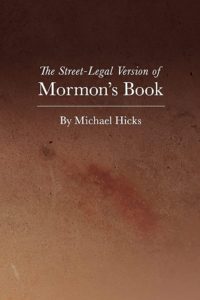 The Street-Legal Version of Mormon’s Book. 2012 AML Adaption Award
The Street-Legal Version of Mormon’s Book. 2012 AML Adaption Award
We could have titled this award “the best translation of ancient scripture to a modern language,” but surely admirers of William Tyndale and Joseph Smith would be scandalized that a lowly music professor from Brigham Young University won it instead of these older luminaries. We therefore give the first ever award for adaptation from a modern language into a more modern language to Michael Hicks for his book The Street-Legal Version of Mormon’s Book. Whether translating or adapting, anyone working with literature must honor the original poetry and the essential meaning of the text. Popular Russian poet Yevgeny Yevtushenko requested that only poets translate his works, so that his poetic sensibility be maintained—even at the sacrifice of a direct translation. The essence of the poem cannot omit the beauty of the poetry itself. Hicks’s book is summarized thus: “Not a ‘simplified’ version of the Book of Mormon, but a completely rewritten paraphrase, with a contemporary voice hovering somewhere in the realm of J. D. Salinger, Hunter Thompson, and some generic humanist academic/poet, i.e., me (Hicks). An affectionate, meditational dramatization and commentary.” Poetry and music—those intersecting webs of explanation and exultation; the pastoral and the volatile—comprise much of Hicks’s own life. His own heart is described in this verse from 3 Nephi, as he has adapted it: “Blessed are the few whose hearts throb with purity, because God cannot remain invisible to you.” We are told to acknowledge God in all our ways. Michael Hicks has given us yet another way to let God appear.
“The Second Coming of Mormon Music” from The Kimball Challenge at Fifty: Mormon Arts Center Essays. 2017 AML Criticism Award.
A highlight in the already-loaded collection The Kimball Challenge at Fifty, Michael Hicks’ article “The Second Coming of Mormon Music” is the one that comes the closest to feeling like a bona fide sermon — while still being a critical essay — while still transcending both categories. Indeed, transcendence is the overriding call-to-arms of this article: transcending the boundaries between maps, between historical periods, between faiths, between people. He takes Spencer W. Kimball’s 1967 call for a Mormon artistic Renaissance seriously — so seriously, in fact, that he considers that initial call too limiting. For Hicks, the Prophet’s examples of “Great Art” were far too Eurocentric and pre-modern — that is, far too bound in space and time. Taking Christ Himself as his central metaphor, Hicks both sees and seeks for a Mormon music that is as omnipresent and all-encompassing as the Second Coming will be.
Here is a video of Hicks reading the essay at the Mormon Arts Center Festival.
